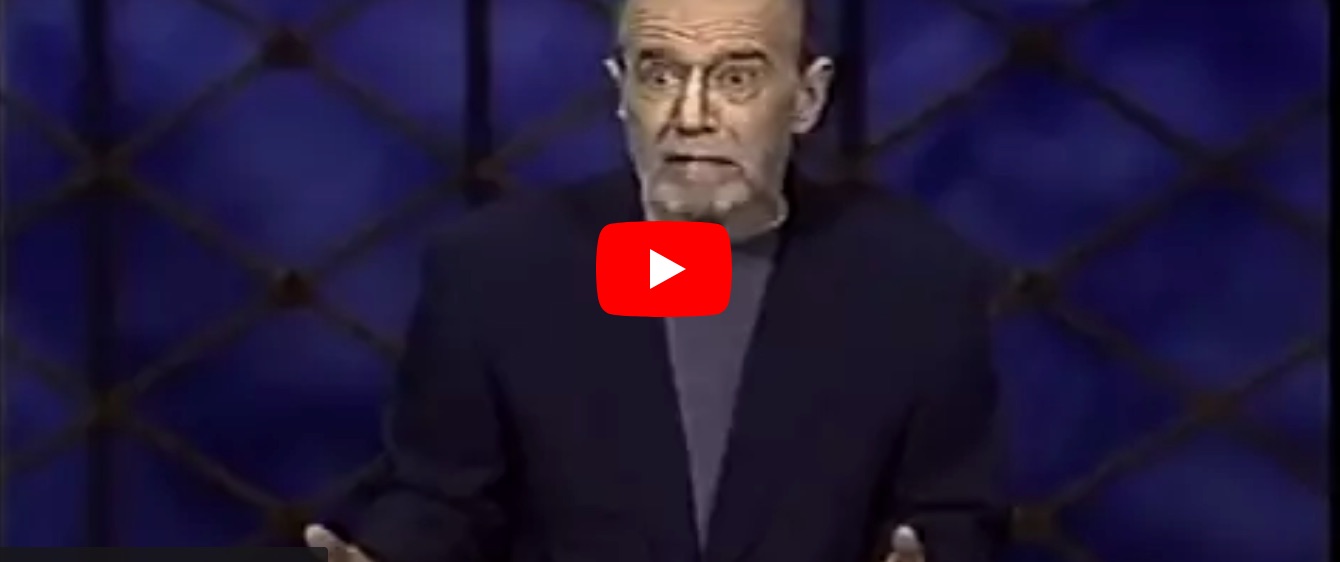It’s important to learn from the experts.
My fourth grade teacher once gave us an essay assignment. His ended his instructions by telling us to write, “in your own words.”
His phrasing threw me off. I remember thinking something along the lines of, Yeah, right. How about you select words that more precisely convey what you mean? Because if you really mean that I can actually choose my own words, you’re going to have to learn a whole new language.
It would be another few years before my best friend would discover his dad’s copy of George Carlin’s A Place for My Stuff, which caused us to howl and double over laughing but also got us thinking about language and logic.* But I was beginning to understand that our imprecise use of language causes all sorts of problems in advertising, politics, relationships, and everyday interactions.
The books I read about dystopian futures have all shared a theme: bad language. Not the words per se, but the (sometimes intentional) misuse of words to obfuscate meaning instead of making it clear.
Learning from the experts
Most of our nation’s teachers earn their credentials and enter the profession through an academic program. Teaching is their first job. Which means that they are not established experts in any other arena.
I believe learners need information from experts in their fields.
My students have learned about books and writing with author Cory Doctorow. We’ve learned about the Internet with Howard Rheingold, who Forbes Magazine called a “digital elder,” and Bryan Alexander, a leading authority on the use of technology in liberal arts education. We’ve learned about music and performance with 2011 Guitar Center Drum-Off Champion J.P. Bouvet (who is made of awesome), U2 keyboardist Terry Lawless (notes and video here), and cellist/music professor Laura Ritchie. We’ve talked politics with Pennylvania State Senator Daylin Leach.
Learning language
Nowhere in learning is expertise more important than helping each other understand the language we use.
Sadly, at this point there is no bandwidth that can help us connect with the most insightful linguist of my lifetime. I know: other people call him a comedian. They might even sniff and start in on Chomsky or Pinker. Or David Foster Wallace. But to me, *George Carlin was the GOAT at teaching us about using words and considering whether they really mean what we intend.
Carlin encouraged us to consider our words by placing them in the context of our intentions: “There are no bad words. Bad thoughts, bad intentions… and words.”
In this clip, Carlin analyzes our idioms – specifically, at the 6:05 mark, the wisdom of putting things “in your own words.”
(Much of this was previously published on Dr. Preston’s English Literature 2013-2014)
